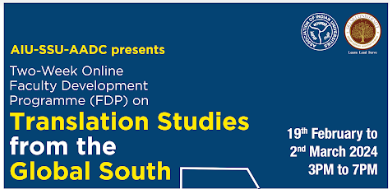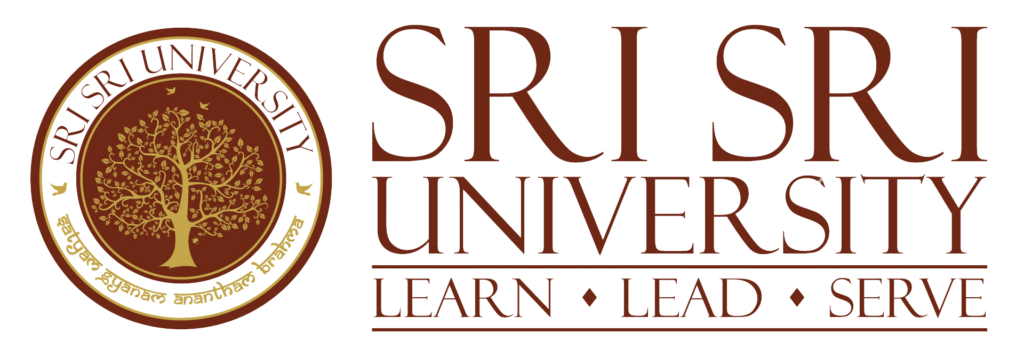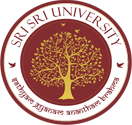RECENT BLOG ARTICLES
Events
Decolonizing Translation Studies: A Global South Perspective
April 3, 2024
By: Kuber Nayak

A groundbreaking collaboration between the Association of Indian Universities (AIU) and Sri Sri University (SSU) recently concluded a two-week Faculty Development Programme (FDP) titled “Translation Studies from the Global South.” This unique program aimed to empower faculty members across India with cutting-edge research and decolonize the field of translation studies.
The program, held from February 19th to March 5th, 2024, brought together renowned scholars from around the world, including Prof. Jatin Nayak (India), Prof. John Milton (Brazil), and Prof. Youngmin Kim (South Korea). These experts engaged participants in discussions on current issues in translation studies, specifically focusing on the perspectives of Asia, Africa, and Latin America.
Deconstructing the “Universal” Concept of Translation
The core objective of the FDP was to challenge the notion of a “universal” approach to translation and explore diverse practices from marginalized regions. Participants delved into:
- The development and expansion of translation studies outside the Global North.
- The potential of the Global South to shape new features in the field.
- The impact of different disciplines on translation studies and its advancement.
A Diverse and Inclusive Learning Environment
The program attracted a diverse group of participants, with 70% holding PhDs and 70% being female faculty members. This diversity fostered a rich learning environment where participants could:
- Present their research on decolonizing translation studies.
- Learn how different fields influence and advance translation theory and practice.
- Exchange ideas and collaborate on creating new models and theories.
A Step Forward for Translation Studies in India
The successful completion of the FDP marks a significant step forward for translation studies in India. By bringing together international expertise and fostering critical discourse, the program has:
- Increased the visibility of translation studies in India and abroad.
- Empowered faculty members with advanced research skills and decolonial perspectives.
- Placed Odisha’s academic institutions at the forefront of the field.
This initiative paves the way for further exploration of diverse translation practices and the potential of the Global South to shape the future of translation studies.




